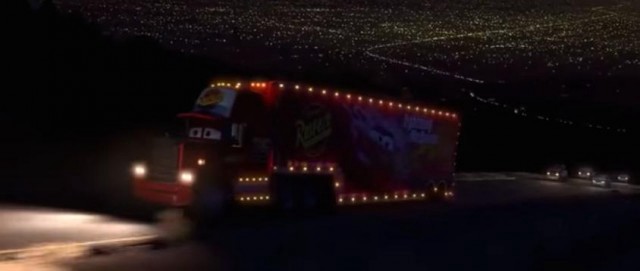Why Self-Driving Trucks Are an Argument for Basic Income

What do you think is the most common job in California? How about Oregon, Missouri, or Louisana? I’ll give you a hint: 28 of our 50 states share this same “most common job,” including the states I just listed.
It turns out that truck driver is the most common job in these 28 states. The same job that self-driving trucks are likely to make obsolete by the mid-2020s.
If you are ready for either an exciting or a terrifying read, take a few minutes to go through Scott Santens’ “Self-Driving Trucks Are Going to Hit Us Like a Human-Driven Truck.” Santens is a writer and a Basic Income advocate, and he uses his newest Medium article to explain exactly how self-driving trucks are going to eliminate over 3 million trucking jobs and disrupt the economy in a myriad of additional ways:
Those 3.5 million truck drivers driving all over the country stop regularly to eat, drink, rest, and sleep. Entire businesses have been built around serving their wants and needs. Think restaurants and motels as just two examples. So now we’re talking about millions more whose employment depends on the employment of truck drivers. But we still can’t even stop there. […] We’re also talking about entire small town communities full of people who depend on all of the above in more rural areas. With any amount of reduced consumer spending, these local economies will shrink.
Self-driving trucks are likely to be safer, cause fewer accidents, and get goods from Point A to Point B in a shorter amount of time. (Self-driving trucks don’t need to sleep, for example.) These trucks are being tested right now, and although we may get an interim period in which truckers are still paid to sit in these self-driving trucks just to make sure everything runs smoothly, Santens believes that “the replacement of truckers is inevitable.”
I have a lot of questions about what might happen if our highways were filled with autonomous trucks, but even I can see how a typical problem scenario might play out: if a self-driving truck stalls or becomes incapacitated for whatever reason, the other self-driving trucks will register it as an obstacle and drive safely around it. The self-driving cars will also safely navigate the obstacle. If the truck blocks both lanes, all of the self-driving vehicles will simply stop and wait patiently for help to arrive. (That’s the real problem; on some of those rural highways, it can take a long time for help to arrive. But no doubt there will be a human somewhere ready to hop into a self-driving car and get ready to make some repairs. Probably on a gig economy basis.)
The theory, anyway, is that all of this will be perfectly safe because all of the self-driving vehicles will know not to hit each other, and then 3 million jobs will disappear. But maybe, as we learned from our discussion of Shadow Work, new jobs will come in to take their place! Self-driving truck software developer! (To me, the most unnerving part of Santens’ article was when he described the Tesla software update that Elon Musk plans to release this summer — a software update that will turn every Tesla into a self-driving car, although according to Verge, “you’ll only be able to engage auto-steering on highways.”)
Santens’ thesis is that we need to start planning now for a Basic Income because as we continue to automate jobs like truck driver, we’ll need some kind of basic survival income to provide for all the people who become unemployed. I am absolutely for the idea of Basic Income, even though I worry about how it would work and whether the people who receive Basic Income would be able to live in anything but poverty.
But hey, we don’t have to figure that out now.
We have at least until 2020.
Support The Billfold
The Billfold continues to exist thanks to support from our readers. Help us continue to do our work by making a monthly pledge on Patreon or a one-time-only contribution through PayPal.
Comments